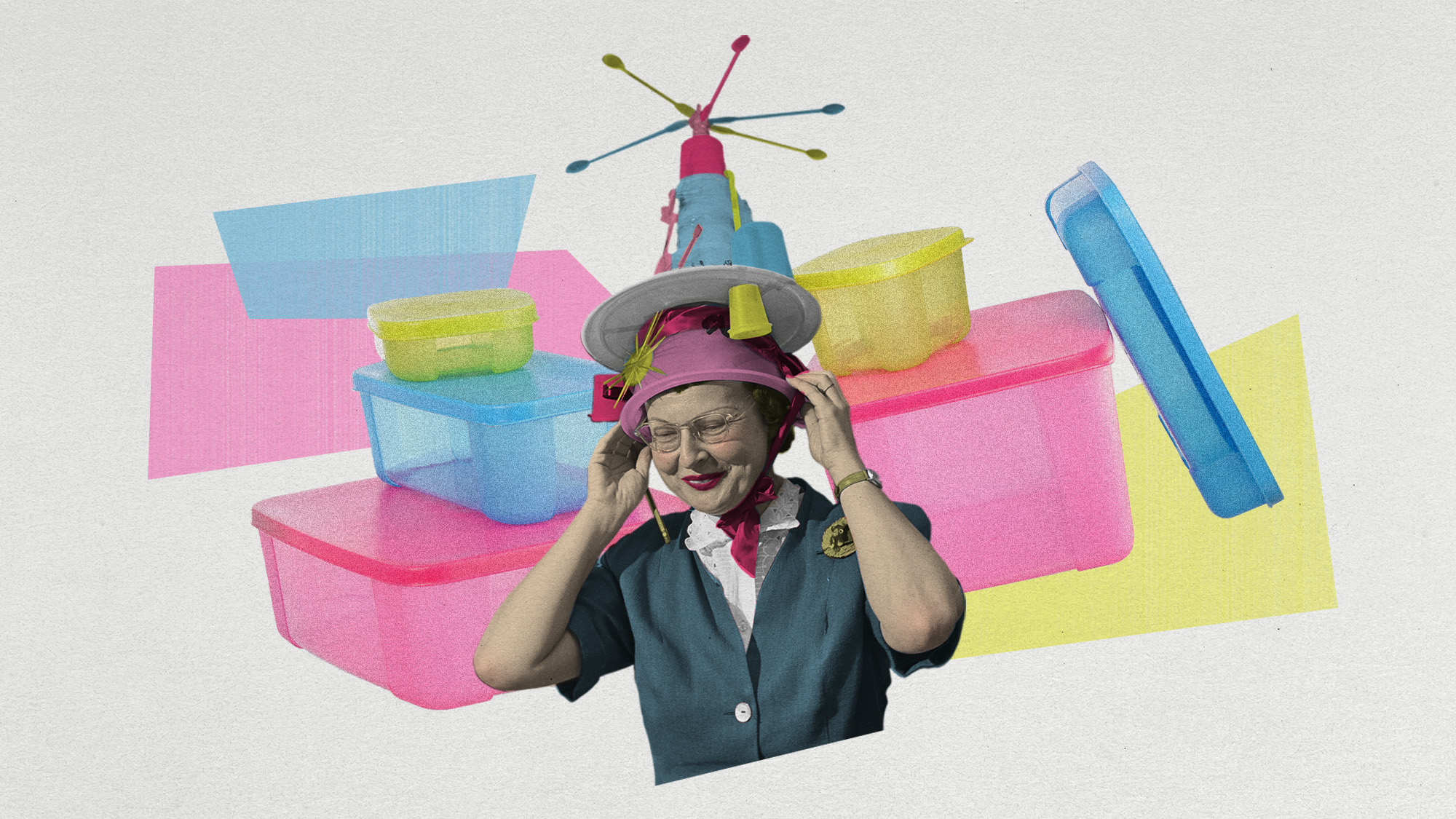The rise and fall of Tupperware
The byword for food storage has filed for bankruptcy – was it a victim of its own success?

A free daily email with the biggest news stories of the day – and the best features from TheWeek.com
You are now subscribed
Your newsletter sign-up was successful
Shares in Tupperware have fallen by more 50% after the food storage brand filed for bankruptcy last week. The brand's very name "conjures images of plastic food boxes" and buying parties in "comfortable suburban homes", said the Financial Times. And for the generations of people who grew up with Tupperware as a fact of life, said The New York Times, the news has "unlocked an airtight seal of nostalgia".
Living room sales
The US brand was formed in 1946 by Earl Tupper, who patented the containers' flexible airtight seal. It was a "major innovation", said the BBC, because it kept food fresh for longer. Not only was this "invaluable" at a time when refrigerators were still out of financial reach for many. households, but it also represented convenience for the growing number of working women looking to batch cooking and leftovers to feed their families.
It was the "pioneering saleswoman" Brownie Wise who turned the brand into a "household name" by pioneering "Tupperware parties", where a network of sellers, almost all of them women, hosted informal Tupperware sales at their homes. The brand image still "harkens back to its 1940s roots: women selling to women, ideally in someone's living room", said NPR. It "once revolutionised women's roles – in the kitchen and the country's economy" and "sealed its place in American lore as a synonym for kitchen storage".
The Week
Escape your echo chamber. Get the facts behind the news, plus analysis from multiple perspectives.

Sign up for The Week's Free Newsletters
From our morning news briefing to a weekly Good News Newsletter, get the best of The Week delivered directly to your inbox.
From our morning news briefing to a weekly Good News Newsletter, get the best of The Week delivered directly to your inbox.
Stinking sandwiches
A "combination of factors dragged the company down", said the FT, including a "patchy global distribution network" and "the increasing anachronism of house party sales in the age of online shopping".
But "no matter what happens with the brand", said the NYT, "the name Tupperware will never go away" because "many consumers will continue to refer to their resealable food containers as Tupperware" regardless of their actual manufacturer. "That may have been a part of Tupperware's problem": cheaper competitors encroached on its territory and benefited from its name.
Shifts in consumer trends have "pushed its containers out of fashion", Susannah Streeter, head of money and markets at Hargreaves Lansdown, told the BBC, as consumers have "started to wean themselves off addictions to plastics" and "find more environmentally conscious ways of storing food".
From Kodak to Blockbuster, it's always hard to convince original industry innovators that "radical change is needed", said The Washington Post. It is the same "phenomenon" with Tupperware, "overtaken by other food-storage players who moved faster to glass, to the internet, to everywhere Tupperware wasn’t going".
A free daily email with the biggest news stories of the day – and the best features from TheWeek.com
Perhaps, said Lucy Mangan in The Guardian, Tupperware is "simply too good" to survive. "My mother's cupboards are filled with containers that are older than I am", and although you "might occasionally buy more Tupperware, as your needs change", you "never need" to replace it. "Well, you reap what you sow", she warned. "A life of stinking sandwiches and schoolbags awaits you".
A second life
A period of uncertainty now beckons for Tupperware's more than 465,000 sellers worldwide, said the FT. Spencer Winters, a lawyer for the company, told a bankruptcy judge that for "nearly half a million people", a "significant portion of their income if not their livelihoods are dependent on this business".
Perhaps it will live on in a different form. Laurie Kahn, a filmmaker whose 2004 documentary, "Tupperware!", won a Peabody Award, told the NYT that a new feature film based on her documentary is in development with a production company. "If we get this feature off the ground, it could be followed up by a musical," she said. "It would be a great musical."
Chas Newkey-Burden has been part of The Week Digital team for more than a decade and a journalist for 25 years, starting out on the irreverent football weekly 90 Minutes, before moving to lifestyle magazines Loaded and Attitude. He was a columnist for The Big Issue and landed a world exclusive with David Beckham that became the weekly magazine’s bestselling issue. He now writes regularly for The Guardian, The Telegraph, The Independent, Metro, FourFourTwo and the i new site. He is also the author of a number of non-fiction books.